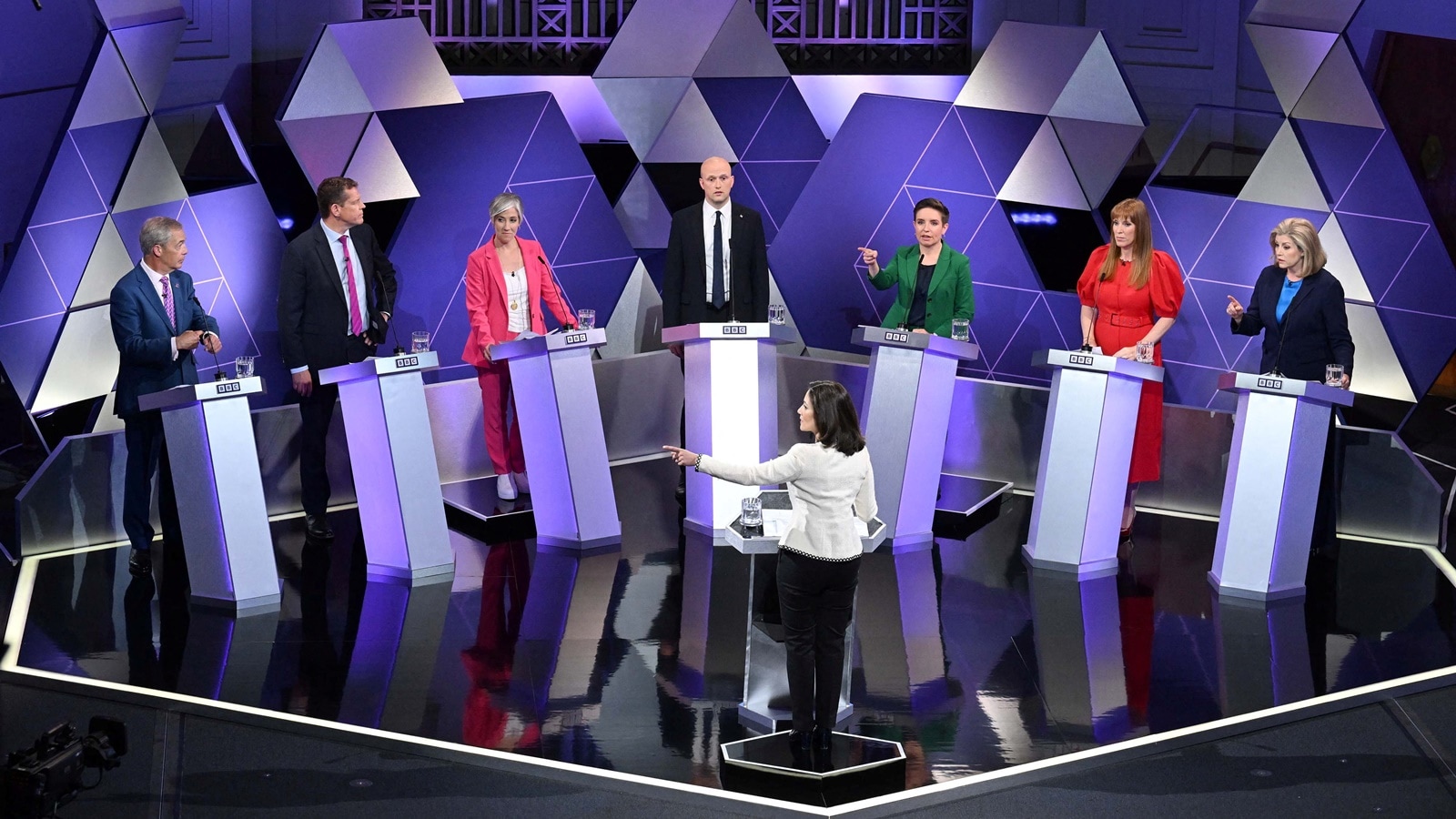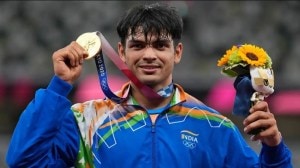Stay updated with the latest - Click here to follow us on Instagram
Key takeaways from BBC debate on UK polls: Sunak criticised, future leaders clash and smaller parties shine
The event marked a tumultuous day for the Conservative campaign, following Prime Minister Rishi Sunak’s controversial decision to leave a D-Day commemoration event early.
 Britain's Reform UK party Leader Nigel Farage, Leader of Plaid Cymru Rhun ap Iorwerth, Britain's Deputy Leader of the Liberal Democrats Daisy Cooper, Leader of the Scottish National Party (SNP) Stephen Flynn, Co-leader of the Green Party of England and Wales Carla Denyer, Britain's Labour Party deputy leader Angela Rayner, Britain's Leader of the House of Commons Penny Mordaunt take part in a BBC election debate, in London, Britain (Reuters)
Britain's Reform UK party Leader Nigel Farage, Leader of Plaid Cymru Rhun ap Iorwerth, Britain's Deputy Leader of the Liberal Democrats Daisy Cooper, Leader of the Scottish National Party (SNP) Stephen Flynn, Co-leader of the Green Party of England and Wales Carla Denyer, Britain's Labour Party deputy leader Angela Rayner, Britain's Leader of the House of Commons Penny Mordaunt take part in a BBC election debate, in London, Britain (Reuters) In a heated and chaotic BBC debate on Friday night, representatives from the United Kingdom’s main political parties clashed on various issues. The event marked a tumultuous day for the Conservative campaign, following Prime Minister Rishi Sunak’s controversial decision to leave a D-Day commemoration event early.
1. Rishi Sunak criticized for D-Day departure
Prime Minister Rishi Sunak faced significant backlash for departing early from the 80th anniversary of D-Day event in Normandy to return to the election campaign trail. Leader of the House of Commons Penny Mordaunt was among those who rebuked Sunak, calling his decision “completely wrong” and emphasising his duty to represent all citizens, including veterans. This incident has potentially damaged Sunak’s standing within his party and the broader electorate.
2. Future leaders clash: Mordaunt vs Rayner
The debate highlighted a potential future leadership rivalry between Penny Mordaunt and Labour’s Deputy Leader Angela Rayner. Their exchanges were particularly fiery, with Mordaunt attacking Rayner’s past opposition to renewing the Trident nuclear weapons system and Rayner criticising the government’s economic and immigration policies. Their intense interactions suggest that both women are positioning themselves as prominent figures within their respective parties.
3. Nigel Farage’s comments fall flat
Nigel Farage, representing Reform UK, struggled to gain traction with his views on the National Health Service (NHS), immigration, and climate crisis. His remarks were poorly received by the audience, who visibly disagreed with his characterisation of the election as an “immigration election”. Farage’s attempts to label Sunak as “unpatriotic” and criticise Labour leader Keir Starmer also did not resonate, highlighting a challenging night for the former UK Independence Party leader.
4. Stephen Flynn emerges as debate winner
Stephen Flynn, the Scottish National Party’s (SNP) Westminster leader, emerged as a significant winner from the debate. Flynn effectively criticised the Conservatives, Labour, and the Westminster system while promoting the SNP’s successes, such as free university tuition in Scotland. His defense of immigration and denunciation of Brexit received applause, boosting his profile and the SNP’s position.
5. Smaller parties gain momentum
Representatives from smaller parties, including the Liberal Democrats, Green Party, and Plaid Cymru, capitalised on the opportunity to criticise the two major parties. Green Party co-leader Carla Denyer and Plaid Cymru leader Rhun ap Iorwerth were particularly effective, using humor and pointed critiques to distinguish their positions. Liberal Democrat Daisy Cooper also made impactful statements, invoking her grandfather’s war service to criticise Sunak’s handling of the D-Day event.
- 01
- 02
- 03
- 04
- 05































